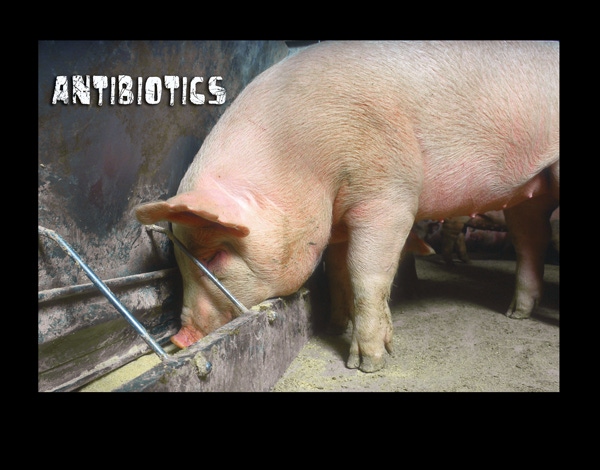July 11, 2014

The issue of antibiotic use in livestock continues to be debated in political circles. This week President Obama held a webinar to take a look at agricultural antibiotic use. The issue is on the minds of international leaders as well, and several stories delved into the antibiotic issue on a global scale. Feed Navigator.com outlined steps being taken by the UK’s parliament to investigate antimicrobial use in agriculture. At the same time, a National Law Review article suggested that antibiotic resistance may be more related to too few new antibiotics being developed than to agricultural use. The World Health Organization will be holding an online public discussion over the next two months as part of a move toward developing a Global Action Plan on Antimicrobial Resistance.
President’s Science and Technology Council Holds Webinar
The National Pork Producer’s Council (NPPC) reports that the President’s Council of Advisors on Science and Technology (PCAST) held a webinar to discuss a report that is expected to be released in the next several weeks. The webinar called for the creation of alternative antibiotics for agricultural uses to decrease the use of ones relevant to human medicine.
NPPC says:
“PCAST members stated their interest in monitoring antibiotic use in agriculture to better understand agriculture’s contribution to antibiotic resistance in humans. The council is concerned about disease prevention use of antibiotics and said veterinarians have an important role to play in ensuring responsible use of antibiotics.”
PCAST is an advisory group of scientists and engineers who advise President Obama and the Executive Office of the President on science and technology issues. NPPC says it will keep its members up-to-date on PCAST developments as they relate to animal agriculture.
Learn more at the NPPC website.
Politicians in United Kingdom (UK) Debate Antibiotic Use
FeedNavigator.com outlined efforts by the UK’s Parliament to sort out the role of agricultural use of antibiotics in antimicrobial resistance. In an article, “UK Politicians Call for Action to Limit the Use of Antibiotics in Livestock,” author Jane Byrne writes:
“UK politicians are calling for government action to ensure the use of antibiotics in farm animals is strictly required for therapeutic use and that more research is carried out on the link between animal and human pathogens resistant to antibiotics.”
Lack of Antibiotic Development Creates Risk
The National Law Review recently ran a story with the headline, “Confronting Apocalyptic Risks of Broken Antibiotics Pipeline.” The story centered around the fact that investment in new antibiotics has been slashed, and the “pipeline” of new antibiotics is nearly empty. World leaders are expressing fear that the rise of antimicrobial resistance has outpaced the development of replacement drugs.
The article notes that President Obama has included antimicrobial resistance as a focus of his 26-nation partnership Global Health Security Agenda. He recently announced a September 2014 White House international conference on antimicrobial resistance. In June, President Obama and G7 leaders committed to support development of a Global Action Plan on Antimicrobial Resistance with the World Health Organization (WHO). As part of this effort, health ministers from 194 countries have asked the WHO to collaborate with the United Nations Food and Agriculture Organization (FA)) and the World Organization for Animal Health (OIE) on an approach that brings together human health, animal health and agriculture.
The National Law Review article also states:
The failure to develop a robust, long-term pipeline of effective new antibiotics, treatments and diagnostics for infections means that diseases that had become survivable and procedures that are now safe, routine and low-cost are becoming life-threatening once again and treatment costs are rising. Terrorists, leaders also fear, will try to take advantage of these vulnerabilities and the rise of “superbugs” to inflict great harm. The current and potential costs of a failure to address antimicrobial resistance are very high.
Why is this market failure occurring? By definition, antibiotics are taken for relatively short periods to treat infections. Unlike companies which make new drugs for long-term, chronic diseases, those which develop new antibiotics fall victim to their own success. It is very expensive to develop new antibiotics, and as they eliminate disease and provoke resistance, they lose their market value. UK Chief Medical Officer Sally Davies warns of the possibility of a post-antibiotic “apocalyptic scenario” and stresses that, “This is an issue of markets and economics.”
You May Also Like



